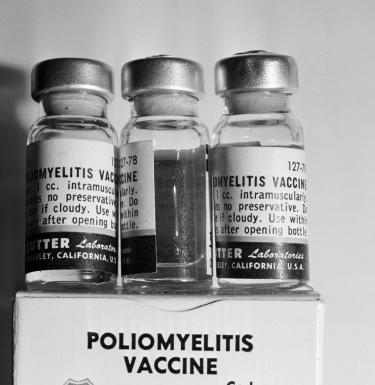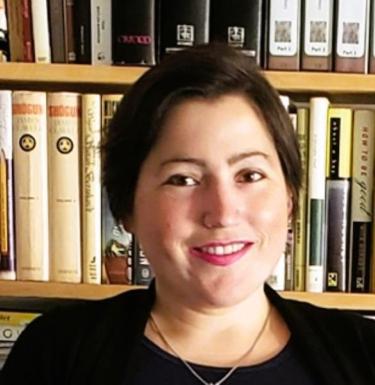
Polio is eradicated in Canada. Will vaccine skepticism usher in a return?
Peter Salk professor in the department of infectious diseases and microbiology, explained that the public’s fear of serious diseases has diminished over time, as the terrifying effects of polio have faded from memory.
Community spaces can help reduce eviction and alcohol-related impacts
Michelle Dougherty, PhD student in the Department of Behavioral and Community Health Sciences, is a researcher studying eviction and its impact on health outcomes. Michelle’s latest work focuses on eviction, alcohol use, alcohol-related impacts, and how they interact.
Son of polio vaccine creator says he is 'relieved' Trump supports vaccine
CNN's Brianna Keilar speaks with Peter Salk, professor of infectious diseases and microbiology, about the importance of vaccines, misinformation and his views on today's vaccinations.
Milwaukee’s approach: How officials and advocates want to address racism as a public health crisis
“If we’re not going to name racism in the first place, then we’re not going to start to develop solutions to address it,” said Dara Méndez, associate professor of epidemiology and associate director of the Center for Health Equity.
Assessing the whys behind racial gaps in county overdose death rates
“There are definitely pretty big differences in access to treatment for opioid use disorder,” said Travis Donahoe, assistant professor in the department of health policy and management.
In memoriam: Clareann Bunker, PhD
A trailblazer in advancing global epidemiologic research, Clareann Bunker, PhD, faculty member in the School of Public Health’s Department of Epidemiology for more than three decades, passed away on November 20, 2024.
Using AI to address post-COVID health care demands
A study led by Qiong Wu, PhD, assistant professor of biostatistics and health data science at Pitt’s School of Public Health, is using artificial intelligence (AI) to tailor treatment and care in hospital settings.

Could cats become a carrier of bird flu?
The new study highlights the need for public health officials to ramp up bird flu surveillance in cats, which tend to have frequent contact with both wild animals and people, said Infectious Diseases and Microbiology Professor and Chair Suresh Kuchipudi.
Examining the factors that play into the high rate of insurance denials
NPR's Michel Martin talks to Miranda Yaver, assistant professor of health policy and management, who offers insights into the high rate of denied health insurance claims.
School of Public Health joins celebration of women leaders
University of Pittsburgh School of Public Health Dean Maureen Lichtveld, MD, MPH, joined Jewish Healthcare Foundation (JHF) leaders and staff at the 125th anniversary celebration of the Ladies Hospital Aid Society (LHAS) on December 4 at the newly named Daniel G. and Carole L. Kamin Science Center, formerly the Carnegie Science Center.
Loneliness widespread among U.S. residents ages 50 to 80, poll shows
"Being socially isolated may spell negative consequences for some older adults, but not others," said Howard Degenholtz, professor of health policy and management.
With fluoride again drawing criticism, sorting out its prevalence in Pittsburgh-area drinking water
Over the years, Professor of Environmental and Occupational Health, Aaron Barchowsky, has been contacted repeatedly by local water systems wondering whether it’s worth the money to add fluoride, and whether it’s safe.
Public Health staff raised money for Street Medicine at Pitt
During the fall 2024 semester, the staff committee in the School of Public Health sponsored a donation drive for Street Medicine at Pitt, which raised $1,230.
PulseNet identifies and stops foodborne illness outbreaks. Health care needs something similar
Alexander Sundermann, assistant professor of epidemiology, highlights the existence of PulseNet, a robust system for detecting foodborne outbreaks, and contrasts it with the lack of a similar system for tracking infections in healthcare settings.